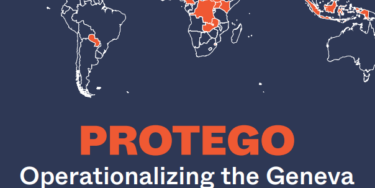The Organisation of Islamic Cooperation: A case study of international organizations’ impact on human rights
(report)
Download PDFThis report published by the Danish Institute for Human Rights argues that an international organization like the OIC that is dominated by conservative, authoritarian states is unlikely to create political opportunity structures to advance human rights.
In 1990, the OIC introduced the Cairo Declaration on Human Rights in Islam, presenting a set of Islamically defined human rights which conflict with essential principles of the UN Declaration on Human Rights. More recently, the OIC has become known for its promotion of the so-called defamation of religion agenda, challenging the right to freedom of expression. Western states argued that religious people have a right to protection from discrimination and defamation—but religions do not.
However, there are signs of the OIC moving towards a universal conception of human rights, strengthening its participation in the international human rights system. As part of a larger reform of the OIC, a Ten Year Programme of Action was launched in 2005, introducing a clear focus on universal human rights and the importance of mainstreaming them into all programmes and activities.
In 2011, a human rights commission was established with the purpose to support member states in their implementation of international human rights obligations. And the same year, the OIC co-sponsored a UN resolution on religious discrimination, at least on the surface signaling a move away from the anti-defamation agenda.
Optimists see these initiatives as signs of the OIC’s willingness to leave behind the Cairo Declaration, and instead promote a conception of rights that is more in line with international human rights. Skeptics see them as nothing but window-dressing.
These issues were on the agenda at a workshop on the OIC and human rights in September 2013 hosted by the Danish Institute for Human Rights and the ISA Joint Human Rights Conference in Istanbul in June 2014. Some of the papers, including this one written by Anthony Tirado Chase, presented at the workshop and the ISA conference are now being published in the Danish Institute for Human Rights’ working paper series Matters of Concern.
PREFACE 4
INTRODUCTION 7
1 Problematising the OIC’s Promise 8
2 The OIC and Human Rights: Actions and intentions 12
3 International Organisations: can the independently impact human rights? 21
CONCLUSION 25
Download PDF


